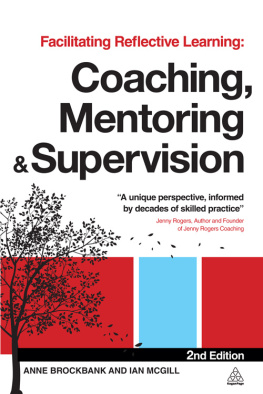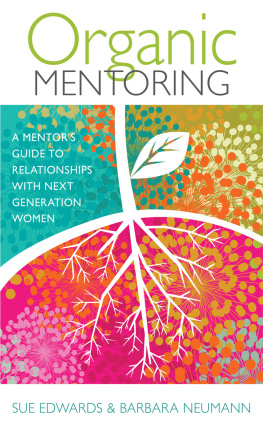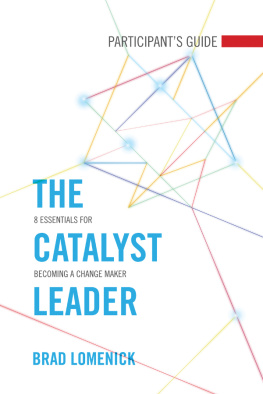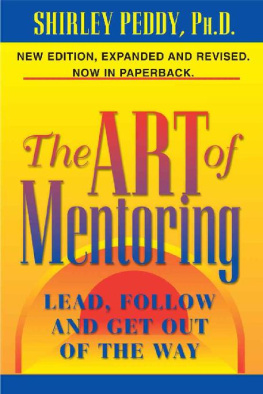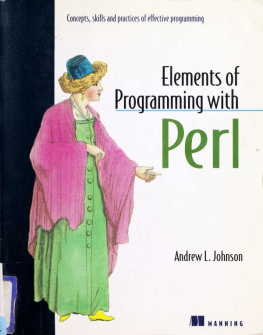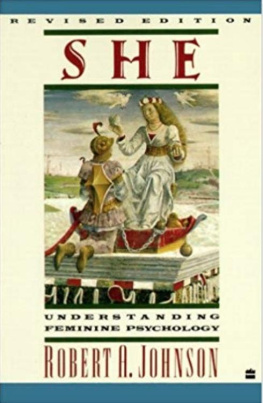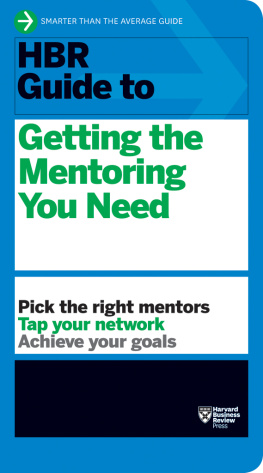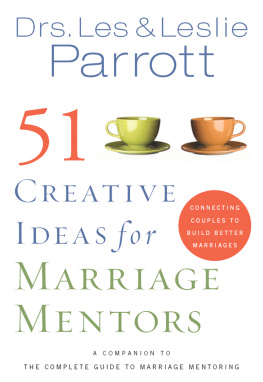W. Brad Johnson - The Elements of Mentoring
Here you can read online W. Brad Johnson - The Elements of Mentoring full text of the book (entire story) in english for free. Download pdf and epub, get meaning, cover and reviews about this ebook. publisher: St. Martins Publishing Group, genre: Home and family. Description of the work, (preface) as well as reviews are available. Best literature library LitArk.com created for fans of good reading and offers a wide selection of genres:
Romance novel
Science fiction
Adventure
Detective
Science
History
Home and family
Prose
Art
Politics
Computer
Non-fiction
Religion
Business
Children
Humor
Choose a favorite category and find really read worthwhile books. Enjoy immersion in the world of imagination, feel the emotions of the characters or learn something new for yourself, make an fascinating discovery.

- Book:The Elements of Mentoring
- Author:
- Publisher:St. Martins Publishing Group
- Genre:
- Rating:3 / 5
- Favourites:Add to favourites
- Your mark:
- 60
- 1
- 2
- 3
- 4
- 5
The Elements of Mentoring: summary, description and annotation
We offer to read an annotation, description, summary or preface (depends on what the author of the book "The Elements of Mentoring" wrote himself). If you haven't found the necessary information about the book — write in the comments, we will try to find it.
The Elements of Mentoring — read online for free the complete book (whole text) full work
Below is the text of the book, divided by pages. System saving the place of the last page read, allows you to conveniently read the book "The Elements of Mentoring" online for free, without having to search again every time where you left off. Put a bookmark, and you can go to the page where you finished reading at any time.
Font size:
Interval:
Bookmark:
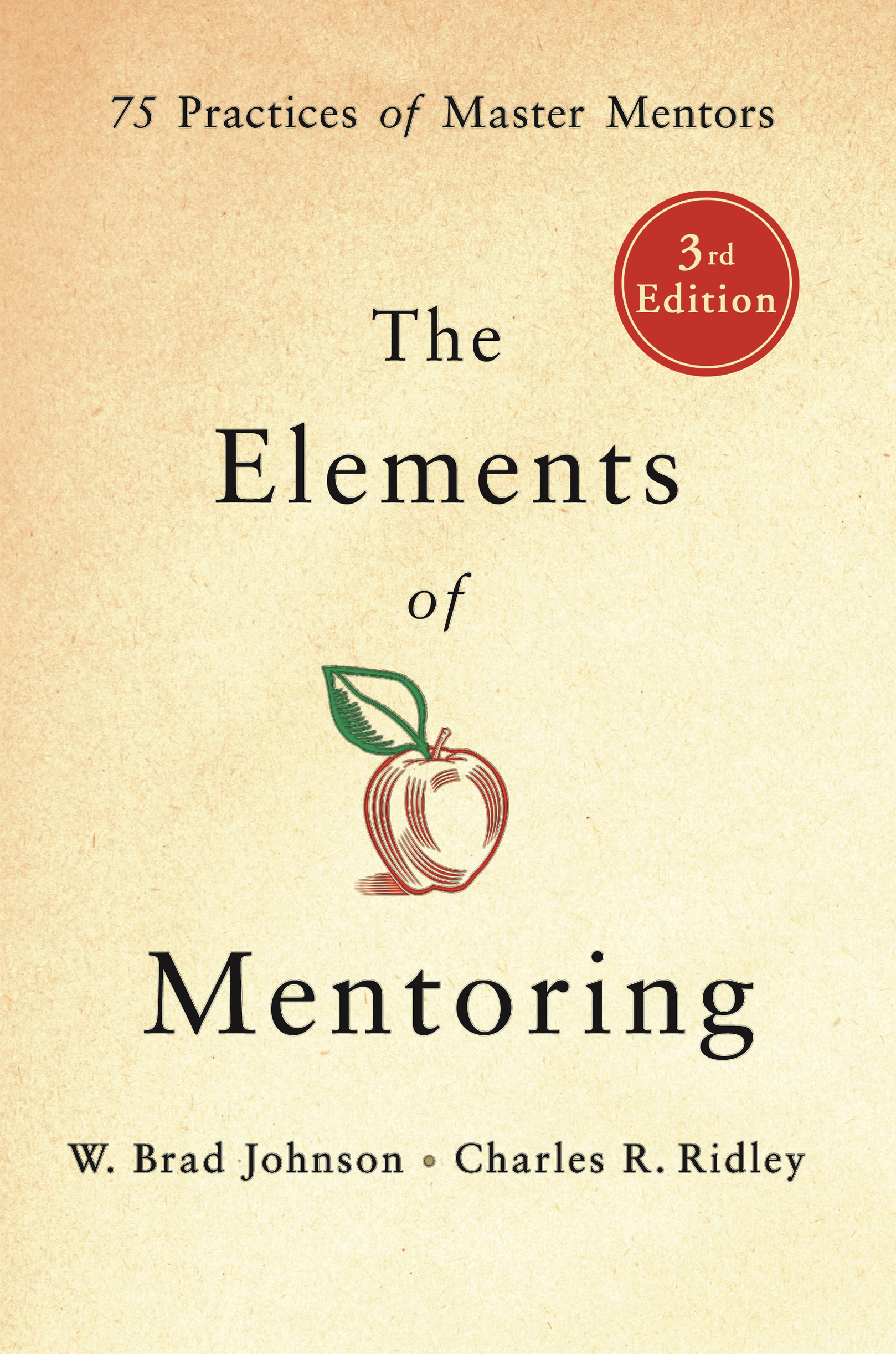

The author and publisher have provided this e-book to you for your personal use only. You may not make this e-book publicly available in any way. Copyright infringement is against the law. If you believe the copy of this e-book you are reading infringes on the authors copyright, please notify the publisher at: us.macmillanusa.com/piracy.
With love, gratitude, and endless admiration, we dedicate this book to our childrenour greatest menteesJacob, Daniel, and Stanton; and Charles and Mary
We thank Laura Apperson, our acquisitions editor at St. Martins Press for finding promise in our idea and delivering encouragement at all the right times.
I thank my wife, Laura Johnson, for her patience, love, and more patience. She brings grace, elegance, and endless kindness to a home full of guys. I am particularly indebted to my graduate school mentor, Charles R. Ridley, who embodies the elements of mentoring. His example piqued my ongoing interest in the power of good mentoring.
W. B. J.
I thank my wife, Mary Ridley, who brings me immeasurable joy, embodies inner and outer beauty, and helps make our home a sanctuary. I am grateful to our children, who make us proud parents. A special acknowledgment goes to the many graduate students in psychology whom I have been privileged to mentor over the years. Without them, I would not have learned the crucial elements of mentoring. I especially am indebted to W. Brad Johnson. He is an exemplar of a mentee who has become a competent mentor in his own right.
C. R. R.
The reasonable thing is to learn from those who can teach.
SOPHOCLES
This is a short book, but not because there is little to say. Much has been written about the art and science of mentoring. In the last several years alone, more than a thousand books and journal articles have addressed the topic. There are research reports, narrative accounts, and manuals for professionals, spiritual leaders, and educators. In this book, we zero in on the basics and eliminate unnecessary words; our goal is to untangle the morass of research and writing on the topic. We offer readers a clear summary of the fundamental principles of mentoringprinciples we deem to be universal. We do this without fluff, hype, and myth. These are simply the nuts and bolts of being a good mentornothing more.
Our heroes in the world of pithy writing are William Strunk and E. B. White. In their now-classic The Elements of Style , Strunk and White offer crucial rules for avoiding basic mistakes in composition. Rule 17, Omit Needless Words, states: Vigorous writing is concise. A sentence should contain no unnecessary words, a paragraph no unnecessary sentences, for the same reason that a drawing should have no unnecessary lines and a machine no unnecessary parts (Strunk & White 2000, p. 23). In our view, a book on the crucial elements of mentoring also should contain nothing unnecessary. Our singular purpose is to distill the research-supported fundamentals on being an effective mentor.
In preparation for the writing of this book, we conducted an extensive search of the scholarly literature on mentoring and read nearly two thousand publications from business, psychology, education, and other fields. We gave more weight to research studies and downplayed feel-good pieces on the topic. We searched for findings with direct relevance to mentors; we combed the research for data-supported truths about what makes a mentor excellent. In The Elements of Mentoring , we funnel the voluminous mentoring literature into a concise guide for the practicing mentor. The result is a short list of the essential ingredients of mentoring: what new mentors need to know and what seasoned mentors will do well to remember. These are the rules of engagement for master mentors. A master mentor is someone who judiciously integrates clear communication, knowledge of human development, technical mentoring skills, emotional intelligence, ethical values, and honest personal reflection in daily mentoring practice for the benefit of individual mentees.
We introduce each element with an applied case study of excellent mentoring in practice. Each case study represents an amalgam of several good mentorships we have witnessed over the years. Although each case alone is fictitious, each offers a clear, real-world example of the best mentoring practice. We conclude each element with a terse summary of its basic ingredientsthe key components . In the trenches, readers may quickly refer back to these salient summaries of each crucial mentoring element. The elements of mentoring cut across all academic disciplines, professions, and contexts. They hold true for managers, professors, leaders, clinical supervisors, and anyone else committed to mentoring. These truths should be as compelling for teachers as for CEOs of multinational corporations.
Our own interest in mentoring stems from our extensive work with students, consulting clients, and research participants. We are psychologists and college professors with a background of researching and writing about mentorships. Brad Johnson is a clinical psychologist and a faculty member in both the Department of Leadership, Ethics, and Law at the U.S. Naval Academy and at the Graduate School of Education at Johns Hopkins University. Charles Ridley is a professor of counseling psychology at Texas A&M University. He is also an organizational consultant. Both of us have written extensively and have mentored scores of excellent graduate students. We are also a mentoring pair. Our own successful mentorship during Brad Johnsons graduate school career triggered an ongoing interest in the various facets of mentoringparticularly the elements of mentor excellence.
We have distilled the vast mentoring literature into 75 key elements for effective mentoring. When practiced in concert, they define the attitudes, values, and skills of the master mentor . The elements are clustered around seven primary themeswhat excellent mentors do (matters of skill); the traits of excellent mentors (matters of style and presence); arranging the mentormentee relationship (matters of beginning); celebrating diversity (matters of human differences); knowing thyself as mentor (matters of integrity); when things go wrong (matters of restoration); and welcoming change and saying goodbye (matters of closure). An appendix provides a Mentoring Code of Ethics for quick reference when faced with an ethical tension, quandary, or conflict in a mentoring relationship. We conclude with a list of important references. These sources are for professionals or scholars who wish to read the research and scholarly literature in greater detail.
Mentoring relationships (mentorships) are dynamic, reciprocal, personal relationships in which a more experienced person (mentor) acts as a guide, role model, teacher, and sponsor of a less experienced person (mentee). Mentors provide mentees with knowledge, advice, counsel, support, and opportunity in the mentees pursuit of full membership in a particular profession. Outstanding mentors are intentional about the mentor role. They select mentees thoughtfully, invest significant time and energy in getting to know their mentees, and deliberately offer the career and support functions most useful for their mentees. Mentoring is an act of generativitya process of bringing into existence and passing on a professional legacy. In Homers epic poem The Odyssey , Mentor was an Ithacan noble and trusted friend of Odysseus. He was charged with caring for Odysseuss son Telemachus when Odysseus departed for the Trojan War. Later in the poem, the goddess Athena assumes Mentors form to guide, protect, and teach Telemachus during his travels. In this role, Mentor (and Athena) serves as coach, teacher, guardian, protector, and kindly guide. As a clarification, we prefer the term mentee when referring to the junior member of a mentorship. Although the word protg Latin for to protectis still used sometimes by other authors, it conjures formal apprenticeship, hierarchy, and a sense of dependency on the part of the junior member.
Font size:
Interval:
Bookmark:
Similar books «The Elements of Mentoring»
Look at similar books to The Elements of Mentoring. We have selected literature similar in name and meaning in the hope of providing readers with more options to find new, interesting, not yet read works.
Discussion, reviews of the book The Elements of Mentoring and just readers' own opinions. Leave your comments, write what you think about the work, its meaning or the main characters. Specify what exactly you liked and what you didn't like, and why you think so.

